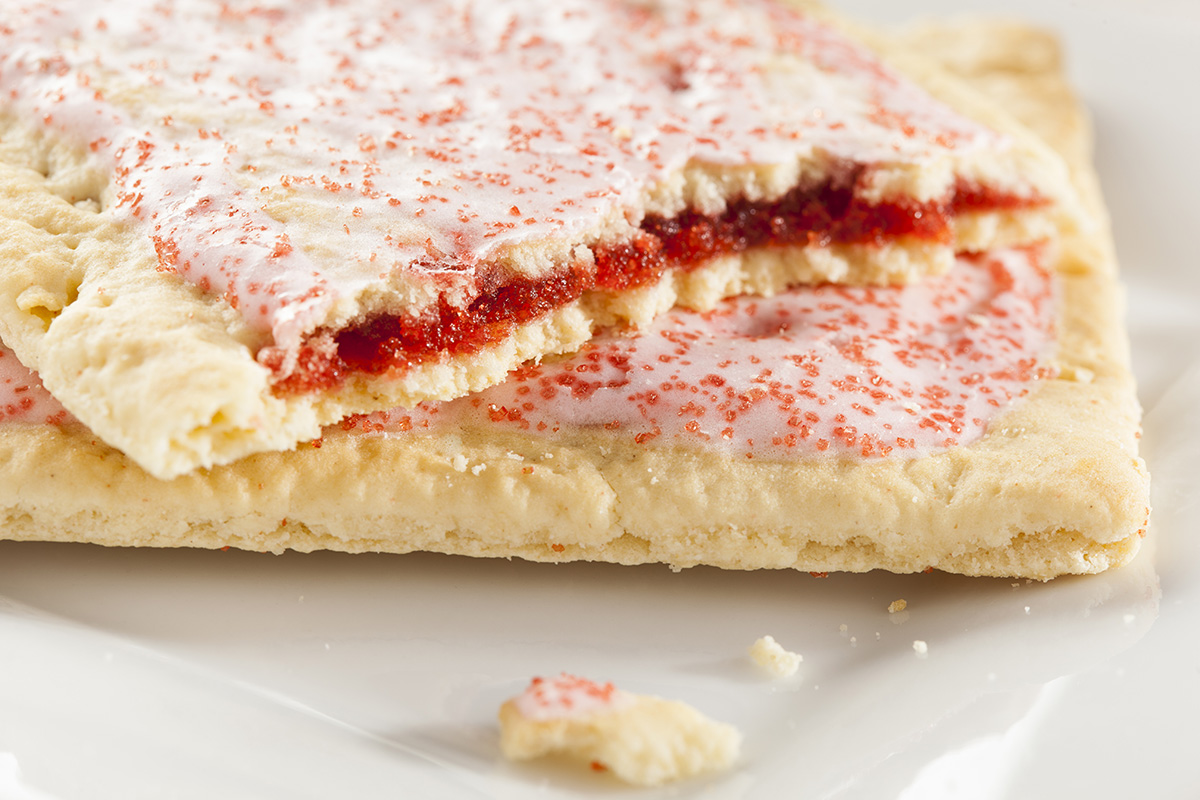Not Enough Strawberry! Lawsuits Filed Over the Lack of Strawberries in Pop-Tarts

We have all been there. You take a bite of your favorite pastry and think to yourself, “this needs more filling” or “this really does not taste like it should.” Well, at least two people went to enjoy their strawberry Pop Tarts and decided enough was enough.
In August, an Illinois consumer, Ms. Anita Harris, filed a class action lawsuit in federal court styled Harris v. Kellogg Sales Co. regarding her “Frosted Strawberry” Pop-Tart. More recently, a New York consumer, Ms. Elizabeth Russett, filed a class action lawsuit in federal court styled Russett v. Kellogg Sales Co. regarding her “Whole Grain Frosted Strawberry” Pop-Tart. Both lawsuits are filed by the same attorney, and virtually mimic each other. The Plaintiffs allege that Kellogg, who manufactures Pop-Tarts, misled consumers about the amount of strawberries in both its Whole Grain and Regular Frosted Strawberry Pop-Tarts. As farfetched as these cases may sound, the stakes are high. Ms. Russett is seeking over $5 million in damages in her lawsuit. What is going on?
For clarity, let’s focus on Ms. Russett’s (“Plaintiff”) lawsuit. Plaintiff asserts that the Pop-Tart’s common or usual name, “Frosted Strawberry – Toaster Pastries,” is false, misleading, and deceptive because the Frosted Strawberry filling contains a relatively significant amount of non-strawberry fruit ingredients, which are shown on the ingredient list. The ingredients are listed on the box, which are listed in order of predominance by weight, relative to each other. So, the product contains a relatively higher amount of whichever ingredient is listed first as opposed to that ingredient listed last. As pointed out in the Original Petition, the ingredient list includes among others, in this order: dried strawberries, dried pears, dried apples, and red 40. Based on a quantitative estimate and analysis of the filling, Plaintiff asserts that the purported Frosted Strawberry Pop-Tart may even contain more non-strawberry fruit than strawberry ingredients. So what?
The Code of Federal Regulations require a product’s common or usual name to include the percentage of any characterizing ingredients or components when the proportion of such ingredients or components in the food has a “material bearing on price or consumer acceptance.” Plaintiff argues that Pop-Tart was required to, but failed, to include the percentage of the characterizing strawberry ingredient in the filling, because its amount has a material bearing on price or consumer acceptance. In other words, “Frosted Strawberry” is misleading because it includes “Strawberry,” but does not include pears and apples, even though those fruits are stated in the ingredient list.
Plaintiff also goes on to point out that other toaster pastries containing strawberries as the predominant filing are not a “rare or pricey delicacy” that would make a reasonable consumer check the amounts of each ingredient. Competitor pastries to Kellogg’s described as “frosted strawberry” do actually put consumers on sufficient notice that they have less strawberry ingredient than consumers would otherwise expect via their statement, “Naturally & Artificially Flavored.”
Finally, Plaintiff asserts that the ingredient “red 40” was used to give consumers the false impression the Pop-Tart contains greater amounts of strawberries than it does. Red 40 is a synthetic food coloring made from petroleum. Plaintiff’s contention is that red 40 makes the “strawberry-pear-apple combination” look bright red, so that it appears the Pop-Tart has only strawberries or more strawberries than it actually does – a deceptive act to Pop-Tart consumers.
Will this case be dismissed as frivolous or live on in infamy alongside the McDonald’s hot coffee case in future law school text books? Time will tell. In the interim, our attorneys in Dallas and Austin are available to answer any questions you may have about pop-tarts or pop-torts. Contact us at info@gstexlaw.com if you have any questions.
Legal Disclaimers
This blog is made available by Gerstle Snelson, LLP for educational purposes and to provide general information about the law, only. Neither this document nor the information contained in it is intended to constitute legal advice on any specific matter or of a general nature. Use of the blog does not create an attorney-client relationship with Gerstle Snelson, LLP where one does not already exist with the firm. This blog should not be used a substitute for competent legal advice from a licensed attorney.
©Gerstle Snelson, LLP 2021. All rights reserved. Any unauthorized reprint or use of this material is prohibited. No part of this blog may be reproduced or transmitted in any form or by any means, electronic or mechanical, including photocopying, recording, or by any information storage or retrieval system without the express written permission of Gerstle Snelson, LLP.

